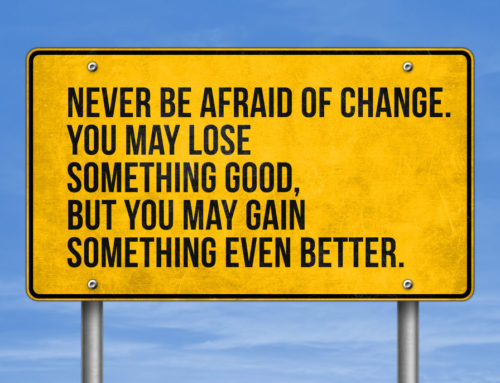 There are lots of things team leaders can do to manage effective teams and increase their performance. For example, if you want to improve your results you might start with making sure that everyone is 100% clear on your shared goals and objectives, so their energy is being directed to the same place.
There are lots of things team leaders can do to manage effective teams and increase their performance. For example, if you want to improve your results you might start with making sure that everyone is 100% clear on your shared goals and objectives, so their energy is being directed to the same place.
You could look at how your team interact with each other. Boost connection, maybe by adding in informal meetings or group activities, to see if you can develop stronger bonds.
A third approach would be to focus on the individual skill levels of your team, with an aim of increasing each person’s competence so that collectively, they perform better.
Ideas like this tend to be the focus of a lot of advice around building effective teams, and for good reason: All of these are great strategies.
But even when you’ve looked at each of these behaviours, it’s common to feel like your team’s missing its “edge”.
Effective teams aren’t built by behaviour alone
If you’ve managed people for any length of time you’ll almost certainly have come across this issue, even though it’s something that’s rarely discussed in leadership literature. Teams that look like they’re doing everything ‘right’, and yet still aren’t able to get past a certain level of performance.
- It’s the team member who’s irritable and impatient – because his marriage is breaking up, and he doesn’t know where to turn.
- The individual who’s distracted and barely able to concentrate, because their intractable issues with their noisy neighbours are keeping them up at night.
- The high flier who hasn’t got their “mojo” back since a family bereavement brought conflict between their siblings that doesn’t seem like it’ll ever get resolved.
These scenarios can be difficult to tackle, because they’re not really about how our people behave at work. We might not have the full picture about what’s going on, and it’s certainly not our place to ask. And even when we do have some of the facts, as leaders, these “personal issues” can feel as though they fall outside our remit. We might decide they’re matters for HR, or facts of life that can’t be changed.
But the truth is, all the strategy in the world won’t help shift your results when your team members are not showing up in a way that’s helpful to work.
Conflict makes most of us miserable, and miserable employees are uniquely ineffective.
How to address issues that go beyond the working day
In a competitive and complex marketplace, keeping home and work separate isn’t as simple as taking off your jacket at the end of the day. Getting great results means bringing your whole self to the table; being able to be flexible, adaptable and empathetic to others. Holding firm boundaries, and knowing how to negotiate and say no without sacrificing important relationships.
So often, the “unrelated” personal issues of our teams point to deeper challenges in how they’re able to show up. (The Spiral of Disempowerment™ shows how our trickiest relationships can become our greatest teachers). However well-hidden they might seem, these issues will almost certainly impact their performance.
So what’s the solution when it comes to building an effective team?
Let’s be clear: You’re certainly not expected to solve all of your team’s problems. If you’re thinking that their marriages, family relationships and community conflicts are none of your business, you’d be right. And it’s also important to remember that these issues are a completely normal part of all of our lives. Everyone experiences conflict from time to time, and there’s nothing we can do to stop that from happening.
What it might be helpful to consider is how you can support your team to react differently to those issues, in a way that can help them with any relationship they’re in, whether at work or in their personal lives.
This is where War to Peace® comes in. It’s an experience that isn’t so much about changing what you do (the way that a new communication technique or a different goal setting strategy might have an impact) as looking at the underlying way we show up. The behaviour changes flow from the deeper shift in whether we’re living in a way that’s at War or at Peace.
When we’re at Peace, we’re naturally more interested and helpful towards others, which invites the same behaviour to come back in return. And it’s not about learning how to say certain things, or ‘acting’ a certain way – you can’t fake being at Peace! One of the key differences about the approach is that we’re not doing it for other people. Instead, it allows us to be (effortlessly) the best version of ourselves no matter how someone else is behaving. That means we’re able to stop giving our power away and waiting for others to change, and start taking control of how we’re being.
Can you see how this could have a more lasting impact on your team’s results than trying to change their ‘surface’ activities and behaviours? How once you have a competent team in place, what they’re doing at work might become less important than how they’re doing it.
Over to you
-
- Have you experienced this hidden block come up with people you manage?
- How might your current team see better results with a whole-person focus on their communication styles?
Leave a comment below letting us know your thoughts.
War to Peace® workshops 2017-8
Our upcoming open-access October 2017 workshop is now fully booked (though if you’re keen for a place, feel free to join the waiting list in case of any last-minute changes).
Our recent War to Peace® workshops have all sold out well in advance, and so we’re delighted to let you know that we we will now be running 4 open access workshops in 2018. The first of these will fall on on 2 March 2018, and you can click here to find out more and book your place.
If you don’t want to wait that long, it’s possible to organise an in-house workshop for you and your team; simply click here to get in touch or call us on +44 (0) 20 8191 7072 and let us know what you’re looking for. To be the first to hear about our new workshop dates, sign up for our once per month blogs posts containing tips and strategies for your relationship challenges.
P.S. pass it on!
If you know a leader who might find this article helpful, please share it by using one of the buttons below.
Photo by James Thomas on Unsplash






Enjoyed reading the article above , really explains everything in detail,the article is very interesting and effective.Thank you and good luck for the upcoming articles